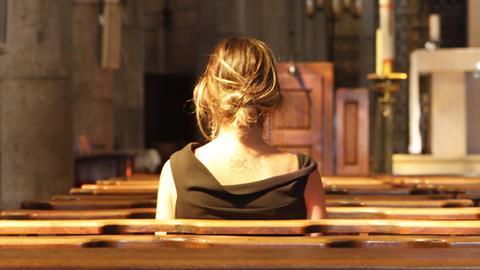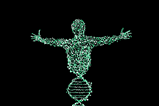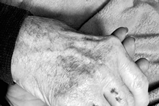As part of world childless week, Catherine Disher reflects on her own journey, and what she wishes other Christians knew about childlessness

Recently, I stood beneath a tree after giving someone a word. I had no idea what the scripture related to; nor did I need to. The person broke down in tears. “We’ve been trying for a baby…” I won’t repeat the rest here, but I’ve heard this story repeated many times over the past decade. With miscarriage and infertility rates where they are, and global birth rates declining, this is not a foreign theme; the pain expressed by human beings experiencing the effects of childlessness can be heartbreaking.
My story
After having two miscarriages, and emergency surgery for an ectopic pregnancy in my 14th week, I understand this pain all too well. “Please,” I begged the doctor. “Do something! I want this baby to live!”
The doctor took my hand and said gently: “I’m so sorry, but there’s nothing we can do. You’re bleeding internally and running a fever. If we don’t remove your fallopian tube, it’s your life on the line. There’s no way for us to reattach your baby… it has to be this way.”
Well-meaning people tend to forget that there is more to life than children and school systems
The devastatingly ironic straw that broke the camel’s back was that I woke up on a maternity ward, where multiple women were being handed their newborns. “We are so sorry, Catherine,” said the nurse. “There were no spare beds in any other part of the hospital so we had to put you here.”
Walking through pain
But my story didn’t end there: after some months of intense healing and with the help and love of close family and friends, the floor I had crumpled onto eventually became the ceiling I stood upon. That is not to say that floor doesn’t still call out to me on particular occasions: Mother’s Day is one. While the hope of my ever being able to have children has now long passed, the pain of it still calls out from time to time.
Every time someone close to me has a baby, I make sure I celebrate with them, and then I wander into nature and chat with Jesus. I ask him how my own three babies are doing. “Are they playing hide and seek with you, Jesus? Are they learning a lot and growing up fast?” Then I let him embrace the darkest and most desperate places within me, before wandering back into life, understanding that I am not alone.
Many women have encountered the same emotions and events that I have, and there are emotionally supportive partners who have processed these situations deeply too. Childlessness and loss of pregnancy are no easy things to work through. There are reminders everywhere and society is (rightfully) set up based on humankind’s ability to “go forth and multiply” (Genesis 1:28). But there are still those of us who haven’t yet been able to do this.
Fitting in
Not having children can make one a misfit in Christian circles. Most Christian ministries seems set up for families (except for singles ministries). Some time ago, women’s ministries became taboo for me. Why? Because I knew the talk would be of nappy-changing, feeding, stories about giving birth and school. I tried to fit into those conversations but, in the end, I gave up. I seemed always to be asking women about their lives and their families, but none of them seemed interested in my world.
When you aren’t a parent, and hopes of ever having children have been removed, you can feel like a failure. I remember saying to my mum after one women’s event: “What do I have to talk about? How I change my cat’s food and litter tray? I understand that their worlds are about feeding and teething, but my world isn’t. Can’t they just be the least bit curious about me?”
The pain expressed by human beings experiencing childlessness can be heartbreaking
In that moment, I realised that I feel seen and heard when talk is intentionally broadened to include me. It can be little questions like: “How was your week? What do you like to do?” - in fact, just about any open-ended question outside of children can lead to a really good conversation.
Some people choose childlessness. For others, childlessness has been forced upon them. Either way, the ache can grow because well-meaning people tend to forget that there is more to life than children and school systems.
Resting in Jesus
Riding in the car a couple of years ago with another childless acquaintance who badly wanted a baby, I could hear the torment in her voice as she said: “We are standing on promises we’ve been given but nothing has materialised yet. We’ve tried everything, we’re believing in faith…”
“You know,” I interrupted, “I used to work in a ministry where people phoned in and some would be in tears. They’d say things like: ‘I just don’t know what I’m doing wrong! Why won’t this promise manifest? I’m fasting, declaring, praying…’ sometimes I’d say: ‘I can hear that you’re doing a lot in your own strength and that’s admirable, but I can also hear the torment in your heart. How about you stop for a moment and focus on Jesus? Take a moment to allow him to lie you down in green pastures, to lead you beside still waters, and heal your soul. Let him restore you to a place of peace.” My friend wiped her tears and drew a breath.
In dealing with childlessness, I don’t think language or attitudes need to change, but awareness does. Awareness of other people’s journeys, and the importance of validating those experiences. Be curious. Seek to understand and love. Love always triumphs over fear, torment, disconnection and failure. Love never fails.
World Childless Week is taking place from 11-17 September






































No comments yet